There is almost nothing in abundance in our orphanage, or in Haiti for that matter, if you don’t count heartache. We have one working bicycle. We have one freezer. We have a single deep well of water. We have no dishwasher.
But one thing we have plenty of is books. Books line the metal shelves of our “living room.” Books stack high in our makeshift classrooms. Books can be found under the beds, half-open on picnic tables, or, most commonly, stretched between the gripping thumbs of our kids.
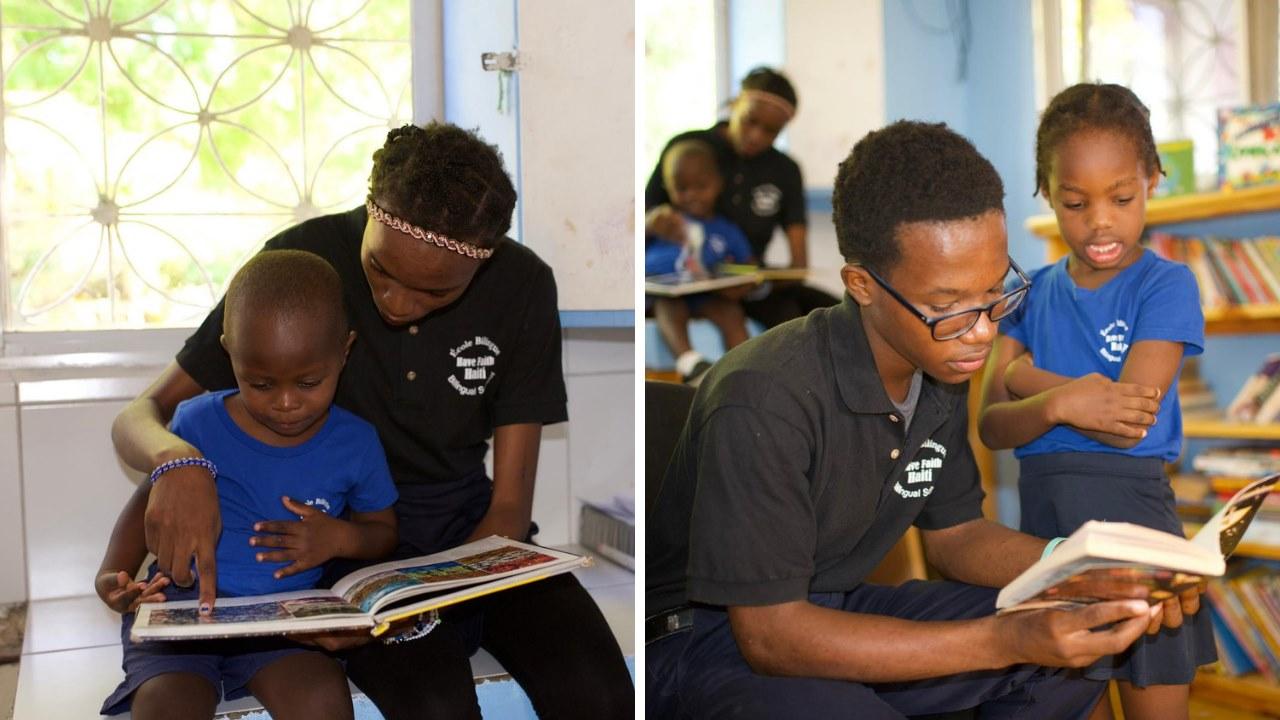
Photo credit: Danielle Cutillo |
With no Internet, no TV, no iPhones, no video games, books are, as they once were in America, the great escape for our children. They don’t read them as much as bury themselves in them. When someone arrives with a boxful of new volumes, perhaps donated by a church, or a school, or just someone who cleaned out their attic, it’s like honey in the hive. The kids swarm. They choose quickly. Sometimes two of them will tug on the same book and tears start to form.
Reading is precious at the orphanage. And since my arrival, I have made it the one indulgence that I cheerfully encourage.
“Any book that you want to read, I will get you,” I tell them. This, in the middle of the hot, empty yard, is like a gushing fountain. They take full advantage, drinking in book after book. Adventure stories. Dragon stories. Immigrant stories. Biographies. Magic books. Science books. They strangely love biology texts and anything having to do with animals, from dinosaurs to sea creatures of the South Pacific. There is almost no book they won’t embrace, running off to a corner of the gazebo, or a shady spot outside the church, they lose themselves for a few hours in the glorious possibilities of the written word.
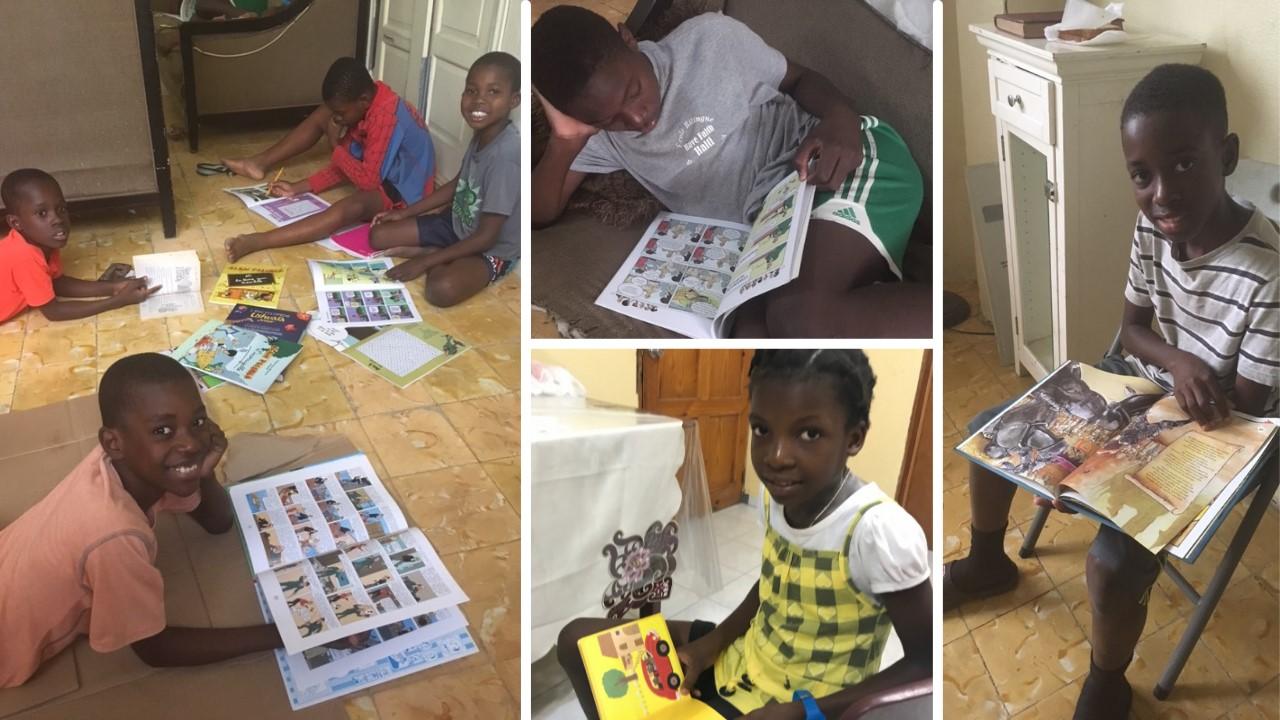
Reading books in Creole, April 2018 / Courtesy of Have Faith Haiti |
So you can understand why, when it came time to write a new novel, I didn’t mind doing much of it at the orphanage, in the presence of the book-loving children. Haiti can be an inspiring place to create, if only because there is so little other interference, audio, video or otherwise. No cable news to distract my attention. No newspapers lying around to steal my tenuous attention span.
I sit outside at a grey folding table on concrete landing we call “the balcony.” The sun does not hit this spot until noon, so the mornings are bearable. And for the last year, during those mornings, I worked on a novel called The Stranger in the Lifeboat.
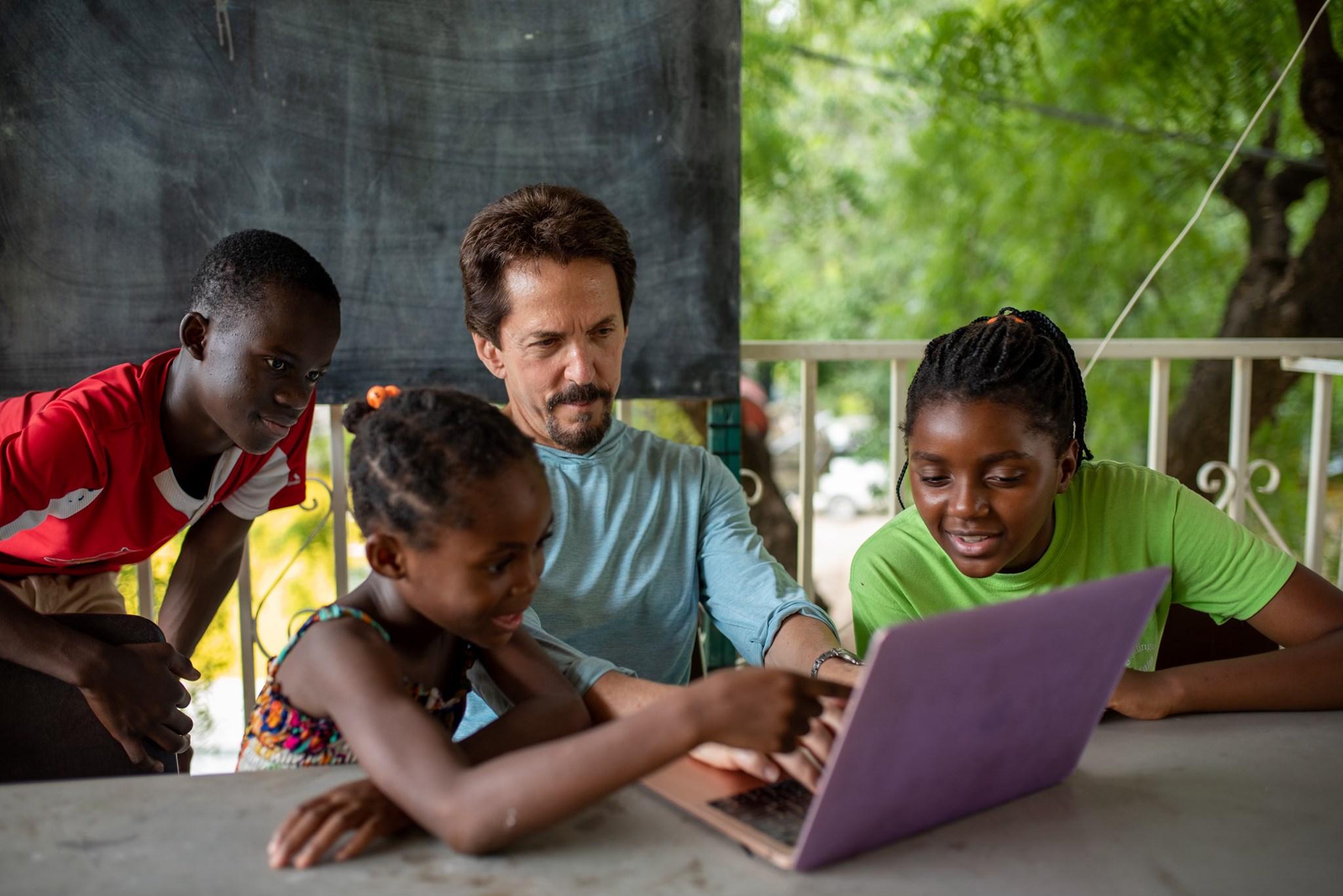
Photo credit: Danielle Cutillo |
That is, when the kids allowed me to.
“Mister Mitch, what are you writing?”
“A book.”
“What kind of a book?”
“A novel.”
“What does that mean?”
“It means it’s fiction.”
“What does that mean?
“It means I’m making it up.”
“You’re not supposed to make things up.”
“Not like lying. Making it up like we make up stories.”
“Oh.”
“Understand?”
“What is it called, Mister Mitch?”
“The Stranger in the Lifeboat.”
“Who is the stranger in the lifeboat, Mister Mitch?”
“You know what? Why don’t you read it?”
And they did. My earliest readers of this book — which explores a lifeboat filled with 10 desperate castaways who, after three agonizing days at sea, pull a stranger into their boat who claims to be God — were the teenagers at Have Faith Haiti. They are voracious readers and their eyes lit up at the chance to get in on something early.
So I handed them manuscripts I had printed out and off they went — to the gazebo, to the picnic table, to the steps outside the kitchen, to their bunk beds, to devour my words and make up their own minds.
Within a day, most of them had finished it.
Now, it’s daunting to be reviewed by professionals. But it’s equally anxious when a group of 16 and 15 and even 13 year-olds are judging your work. I found myself glancing over to where they were positioned. Are they yawning? Are they looking around at the kids playing soccer? Am I losing their attention? Do I need to change the plot?
By the end of the week, I had my answers. And I am happy to say the book, as they say in the business, garnered positive reviews.
There were questions, of course. Was the young stranger in the boat really God? Did the rainstorm in the book come from him? Did the police inspector know who blew up the yacht and killed all those people? Why did God say, “I answer all prayers, but sometimes the answer is no.”
And of course, “Mr. Mitch, where did you get this idea?’’
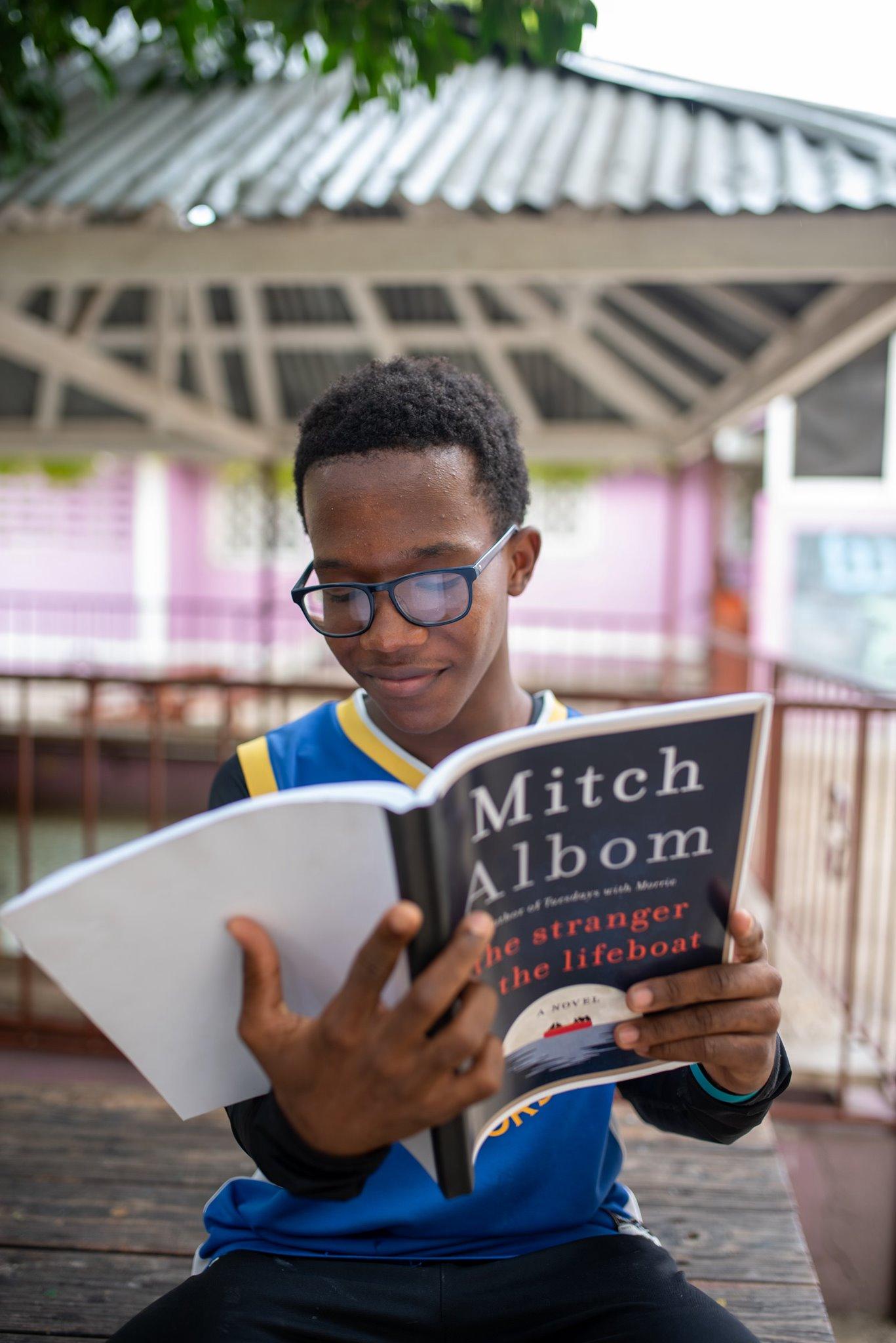
Widley reading a bound manuscript / Photo credit: Danielle Cutillo |
What I didn’t tell them, not entirely anyhow, is that I got the idea partly from them. The faith of our kids, their unblinking belief that something bigger is watching over them, was an inspiration for a book that examines what do we do when we ask for help and help seemingly arrives — but not the way we thought it would, and not the way we imagined it would look? Do we trust it? Do we dismiss it? Are we able to see that sometimes, as Mick Jagger once sang, we can’t always get what we want, but we get what we need?
I know that, nearly 12 years ago, I was not looking to take over an orphanage. But I do know 20 years ago, my wife and I wanted to have children, my wife especially, and it did not happen. And it was possible to think that prayer went unanswered, that asked-for help never arrived.
Yet here we are now, the two of us, surrounded by 53 of the most loving, joyous — and literate — children we could ever imagine. And so that prayer, over time, was answered. Just not the way we thought it would be.
If you ask our kids what they want to be when they grow up, many will answer “A writer.” I know some of that is just mimicking my choice. But a lot of it stems from reading, because, before you can dream of writing, you must read. They read. A lot. If there is one thing to have in abundance in a country that has so little, perhaps stories that make you dream is it.
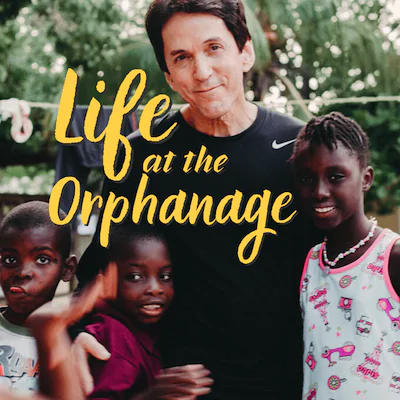
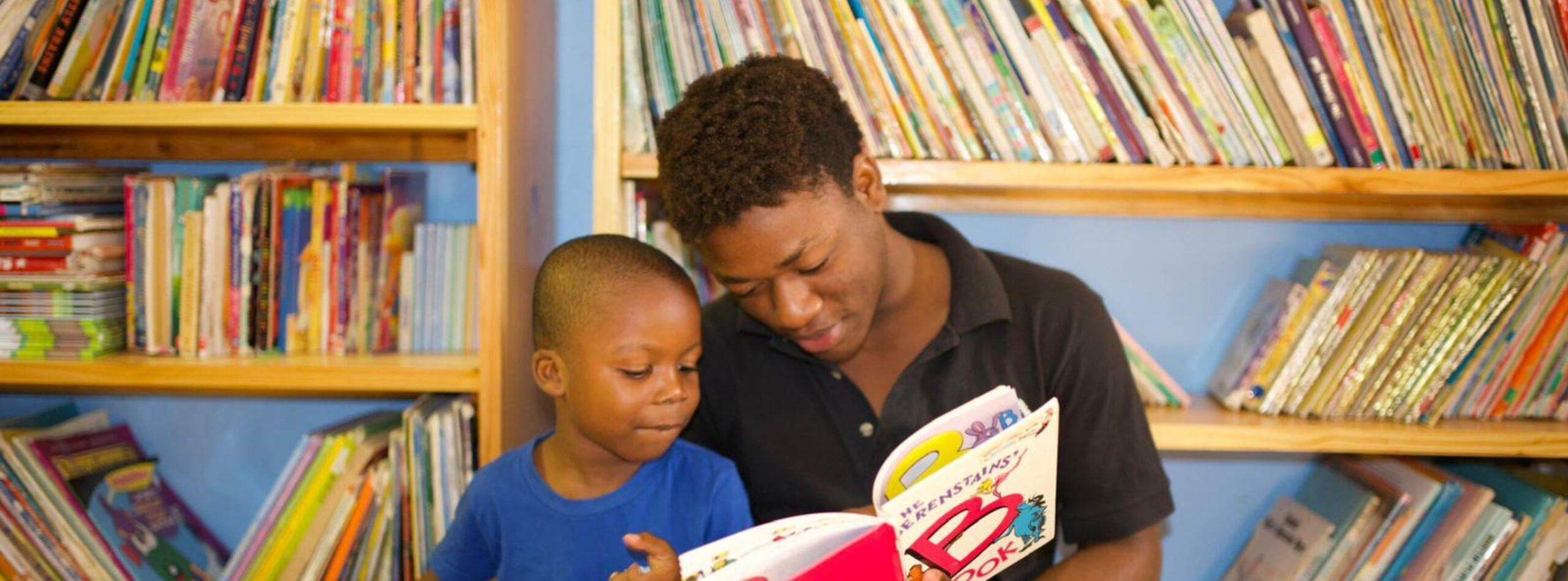

 Join a community of monthly donors
Join a community of monthly donors
0 Comments